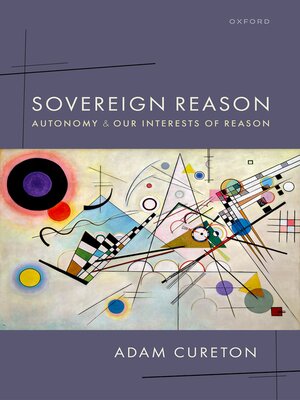
Sign up to save your library
With an OverDrive account, you can save your favorite libraries for at-a-glance information about availability. Find out more about OverDrive accounts.
Find this title in Libby, the library reading app by OverDrive.



Search for a digital library with this title
Title found at these libraries:
| Library Name | Distance |
|---|---|
| Loading... |
We often invoke broad ideas of reason, rationality, reasonableness, reasons, reasoning, and related concepts in commonsense and express their apparent authority through ordinary language and social practices. Despite what many philosophers, economists, psychologists, novelists, and others claim, the reason of everyday life is far more substantive than cold logic or calculating self-interest. Sovereign Reason: Autonomy and our Interests of Reason explores the idea that our power of reason includes an expansive set of governing abilities, substantive motives, and substantive principles. The volume develops this novel but partial theory of reason by drawing on a wide variety of Kant's texts and highlighting themes in our ordinary ways of speaking and thinking. The unifying idea of the Sovereignty Conception of Reason is that of an autonomous person who governs herself by reason in all respects. The Sovereignty Conception of Reason dramatically extends traditional Kantian conceptions of rational self-governance. We are able to govern our many mental powers by reason, not just our ability to make choices, and we can legislate, execute, and adjudicate in ourselves all kinds of principles of reason, not just moral ones. The Sovereignty Conception of Reason holds that our reason includes substantive final interests in various things. Part of having a rational nature is to care about knowledge, enlightenment, explanation, happiness, the lives of persons, and solidarity for their own sake. These interests of reason do not depend on our natural desires but are instead constitutive of our power of reason itself. The Sovereignty Conception of Reason also holds that our reason includes a principle of justifiability according to which mental acts of all kinds, including choices, beliefs, desires, and even feelings, are required by reason if and because they are justifiable to rational people on the basis of their substantive interests of reason. Many specific requirements that we affirm in commonsense can be derived from this abstract principle. The book contrasts the Sovereignty Conception of Reason with other prominent theories and explores specific rational principles it grounds concerning beneficence, coercion, deception, friendship, expressing respect, education, envy, self-development, and others.







